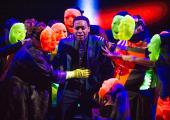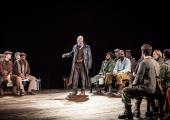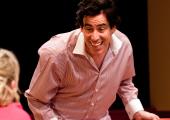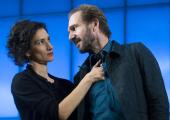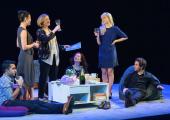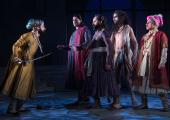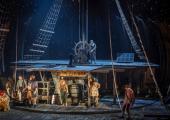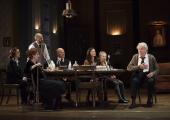'I'M THE PHOTOGRAPHER. ANY NUDITY? ANY FIGHTING?' The Arts Desk's theatre snapper exposes the secrets of the trade
theartsdesk's theatre snapper exposes the secrets of the trade
We are sitting in the lobby of the National Theatre in the early afternoon waiting for the photocall for Dara to begin. Six or seven photographers, one woman, all dressed in jeans and dark jackets with large camera bags, some on wheels. There is not much conversation. As a relative newcomer I don't normally speak, but on this occasion I venture a remark.
“I have seen this play.”
After a pause one of the company says, “You're keen.”
I explain that I went to a preview. Another silence then, “In one sentence, what's it about?”
“It's about Sharia law.”
